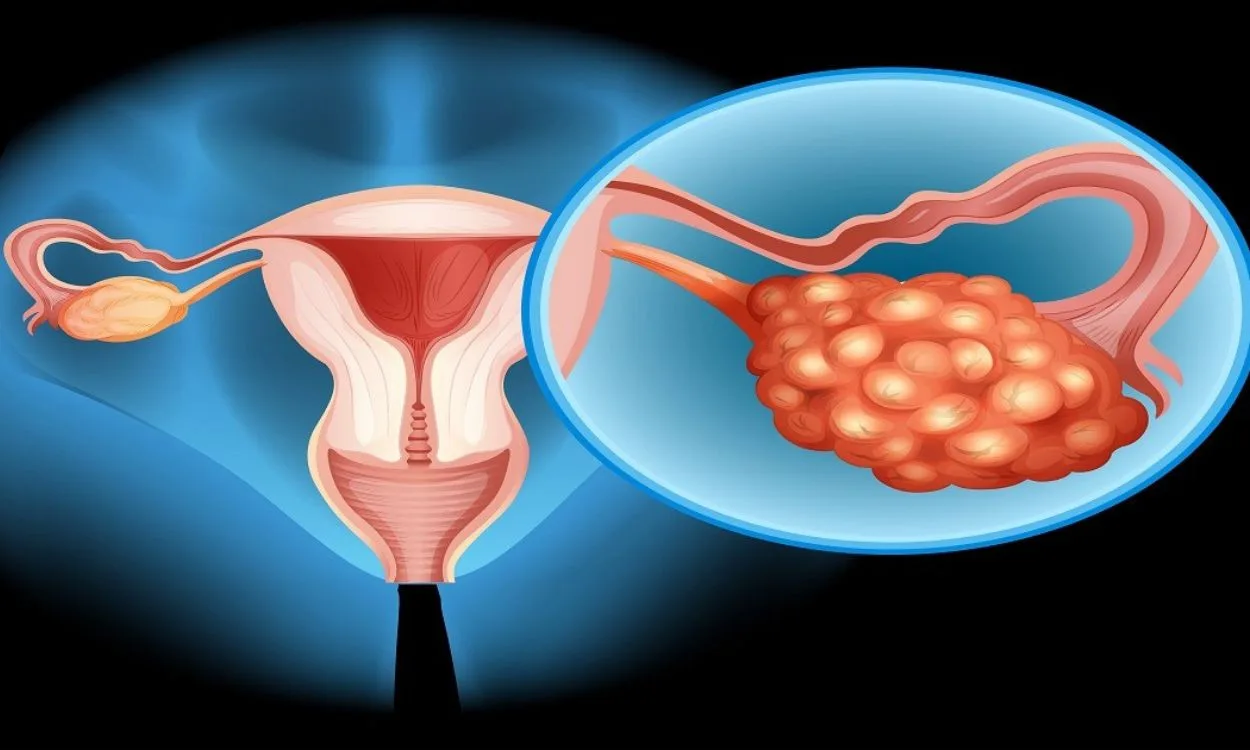How Does PCOD Affect Cholesterol Levels?
Polycystic Ovary Syndrome (PCOS) is a common hormonal disorder among women of reproductive age. It is characterized by an imbalance of hormones, resulting in the growth of small cysts on the ovaries. While PCOS primarily affects the reproductive system, it can also have significant impacts on other aspects of health, including cholesterol levels.
PCOS and Cholesterol Levels:
- Insulin Resistance: One of the key features of PCOS is insulin resistance, a condition in which the body’s cells become less responsive to the hormone insulin. This can lead to elevated levels of insulin in the bloodstream, which in turn triggers the liver to produce more cholesterol. As a result, women with PCOS may have higher levels of total cholesterol, LDL cholesterol (the “bad” cholesterol), and triglycerides.
- Dyslipidemia: PCOS is frequently associated with dyslipidemia, a condition characterized by abnormal levels of lipids (fats) in the bloodstream. Women with PCOS often have lower levels of HDL cholesterol (the “good” cholesterol) and higher levels of LDL cholesterol and triglycerides. This lipid profile is considered a risk factor for cardiovascular disease.
- Hormonal Imbalances: PCOS is caused by an imbalance of hormones, including increased production of androgens (male hormones) such as testosterone. Elevated levels of androgens can contribute to unfavorable changes in cholesterol metabolism, leading to higher levels of LDL cholesterol and lower levels of HDL cholesterol.
- Weight Gain and Obesity: PCOS is closely linked to weight gain and obesity, which can further worsen cholesterol levels. Excess weight, especially around the abdomen, is associated with higher levels of LDL cholesterol and triglycerides, while reducing levels of HDL cholesterol.
- Inflammation: PCOS is also associated with chronic low-grade inflammation in the body. Inflammation can disrupt the normal functioning of cells and tissues, including those involved in cholesterol metabolism. It can lead to increased production of LDL cholesterol and a decrease in HDL cholesterol.
Managing Cholesterol Levels with PCOS:
- Lifestyle Modifications: Making healthy lifestyle changes is crucial for managing cholesterol levels in women with PCOS. This includes following a balanced diet that focuses on whole foods, lean proteins, healthy fats, and complex carbohydrates. Regular exercise, such as aerobic activities and strength training, can aid in weight management and improving cholesterol levels.
- Medications: In some cases, healthcare providers may prescribe medications to help manage cholesterol levels in women with PCOS. This may include statins to lower LDL cholesterol, fibrates to reduce triglycerides, or medications to improve insulin sensitivity.
- Regular Monitoring: It is important for women with PCOS to have regular check-ups with their healthcare provider to monitor cholesterol levels and assess the effectiveness of lifestyle changes or medications. Monitoring cholesterol levels can help identify any abnormalities early on and allow for appropriate interventions.
Now that we have discussed how PCOS can affect cholesterol levels, let us introduce you to a comprehensive health and fitness app that can help you manage PCOS and achieve your health goals – Fitpaa.
Fitpaa: Your Personal Health & Fitness App
Fitpaa is an end-to-end AI-driven metabolism monitoring and management technology that can assist you in your journey towards improving your health and fitness, including managing PCOS and cholesterol levels. Here’s how Fitpaa can support you:
- Metabolism Assessment: Fitpaa’s Medical Nutrition Therapy (MNT) specialists use advanced metabolism monitoring technology to assess your current metabolism. This helps identify the root cause of your health condition, including any metabolic imbalances that may be contributing to your cholesterol levels.
- Personalized Fitpaa Capsule: Based on the results of your metabolism assessment, Fitpaa’s team of fitness coaches, nutritionists, and doctors create your personalized Fitpaa Capsule. This all-in-one health and fitness plan is designed to optimize your metabolism, regulate hormones, and help you achieve your health and fitness goals with a 100 percent guarantee.
- Real-Time Guidance: Fitpaa’s mobile app provides real-time guidance and support to help you follow your Fitpaa Capsule effectively. The app incorporates habit-building techniques and timely nudging from cognitive behavioral therapy to keep you motivated and on track. It also offers features like a virtual workout trainer, diet tracker, performance tracking, and progress tracking.
- Expert Support: With Fitpaa, you have access to a team of fitness planners, nutritionists, fitness trainers, and doctors who regularly review your progress, provide unlimited consultations, and offer guidance to make necessary course corrections. Their expertise and support ensure that you stay motivated and achieve your health and fitness goals.
In conclusion, PCOS can have significant effects on cholesterol levels, putting women at an increased risk of cardiovascular disease. However, with proper management and lifestyle modifications, it is possible to improve cholesterol levels and overall health. Fitpaa offers a comprehensive solution that combines advanced technology and expert guidance to help you manage PCOS, optimize your metabolism, and achieve your health and fitness goals. Download the Fitpaa app today and take a step towards a healthier and fitter life.
Note: Fitpaa is a paid service, and its features and availability may vary based on the subscription plan chosen.









